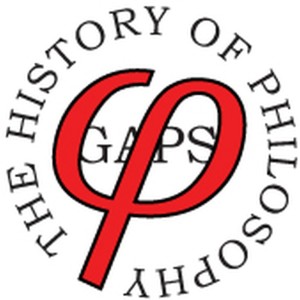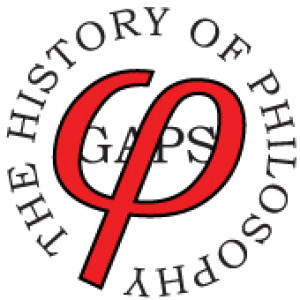Episodes

Sunday Mar 02, 2025
HoP 464 Howard Hotson on the Republic of Letters
Sunday Mar 02, 2025
Sunday Mar 02, 2025
In this interview we learn more about the Republic of Letters: its importance for the history of ideas, it geographic breadth, who was involved, and the contributions of figures including Leibniz and Hartlib.

Sunday Nov 10, 2024
HoP 456 - Touch Me With Your Madness - Cervantes’ Don Quixote
Sunday Nov 10, 2024
Sunday Nov 10, 2024
Why do critics consider Don Quixote the first “modern” novel, and what does it tell us about the aesthetics of fiction?

Sunday May 26, 2024
HoP 446 - Not Doubting Thomas - the Aquinas Revival
Sunday May 26, 2024
Sunday May 26, 2024
Cajetan, Bañez and other thinkers make Aquinas a central figure of Counter-Reformation thought; we focus on their theories about analogy and the soul.

Sunday Oct 29, 2023
HoP 431 - Calvin Normore on Scholasticism
Sunday Oct 29, 2023
Sunday Oct 29, 2023
A discussion of the history and philosophical significance of scholasticism from medieval times to early modernity, and even today.

Sunday Oct 15, 2023
HoP 430 - I’ll Teach You Differences - British Scholasticism
Sunday Oct 15, 2023
Sunday Oct 15, 2023
The evolution of Aristotelian philosophy from John Mair in the late 15th century to John Case in the late 16th century.

Sunday Oct 01, 2023
HoP 429 - She Uttereth Piercing Eloquence - Women’s Spiritual Literature
Sunday Oct 01, 2023
Sunday Oct 01, 2023
How women’s writing in England changed from the early fifteenth century, the time of Margery Kempe, to the late sixteenth century, the time of Anne Lock.

Sunday Apr 23, 2023
HoP 419 - Write Till Your Ink Be Dry - Humanism in Britain
Sunday Apr 23, 2023
Sunday Apr 23, 2023
Humanism comes to England and Scotland, leading scholars like Thomas Eylot and Andrew Melville to rethink philosophical education.

Sunday Jan 01, 2023
HoP 411 - Pen Pals - Later French Humanism
Sunday Jan 01, 2023
Sunday Jan 01, 2023
Joseph Scaliger, Isaac Casaubon, and Guillaume du Vair grapple with history and the events of their own day.

Sunday Jul 17, 2022
HoP 401 - Word Perfect - Logic and Language in Renaissance France
Sunday Jul 17, 2022
Sunday Jul 17, 2022
Jacques Lefèvre d’Étaples and Julius Caesar Scaliger fuse Aristotelianism with humanism to address problems in logic and literary aesthetics.

Sunday Jun 19, 2022
HoP 399 - Seriously Funny - Rabelais
Sunday Jun 19, 2022
Sunday Jun 19, 2022
In his outrageous novel about Pantagruel and Gargantua, Rabelais engages with scholasticism, humanism, medicine, the reformation, and the querelle des femmes.

Sunday May 22, 2022
HoP 397 - Do As the Romans Did - French Humanism
Sunday May 22, 2022
Sunday May 22, 2022
We begin to look at philosophy in Renaissance France, beginning with humanists like Budé and the use of classical philosophy by poets du Bellay and Ronsard.

Sunday Nov 07, 2021
HoP 383 - Slowly But Surely - Huldrych Zwingli
Sunday Nov 07, 2021
Sunday Nov 07, 2021
The Swiss theologian Zwingli launches the Reformation in Switzerland, but clashes with Luther and more radical Protestants.

Sunday Oct 10, 2021
HoP 381 - More Lutheran than Luther - Philip Melanchthon
Sunday Oct 10, 2021
Sunday Oct 10, 2021
Luther’s close ally Melanchthon uses his knowledge of ancient philosophy and rhetoric in the service of the Reformation.

Sunday Jun 06, 2021
HoP 374 - Opposites Attract - Nicholas of Cusa
Sunday Jun 06, 2021
Sunday Jun 06, 2021
The radical negative theology of Nicholas of Cusa, and his hope of establishing peace between the religions of the world.

Sunday May 23, 2021
HoP 373 - Lords of Language - Northern Humanism
Sunday May 23, 2021
Sunday May 23, 2021
Rudolph Agricola, Juan Luis Vives and other humanist scholars spread the study of classical antiquity across Europe and mock the technicalities of scholastic philosophy.

Sunday Feb 28, 2021
HoP 367 - Brian Copenhaver on Renaissance Magic
Sunday Feb 28, 2021
Sunday Feb 28, 2021
Our guest Brian Copenhaver joins us to explain how Ficino and other Renaissance philosophers thought about magic.

Sunday Nov 22, 2020
HoP 360 - Dag N. Hasse on Arabic Learning in the Renaissance
Sunday Nov 22, 2020
Sunday Nov 22, 2020
An interview with Dag Nikolaus Hasse on the Renaissance reception of Averroes, Avicenna, and other authors who wrote in Arabic.

Sunday Sep 13, 2020
HoP 355 - Town and Gown - Italian Universities
Sunday Sep 13, 2020
Sunday Sep 13, 2020
The blurry line dividing humanism and scholastic university culture in the Italian Renaissance.

Sunday Mar 08, 2020
HoP 344 - The Count of Concord - Pico della Mirandola
Sunday Mar 08, 2020
Sunday Mar 08, 2020
Pico della Mirandola argues for the harmony of the ancient authorities, draws on Jewish mysticism, and questions the value of humanist rhetoric.

Sunday Dec 01, 2019
HoP 337 - More Rare Than the Phoenix - Italian Women Humanists
Sunday Dec 01, 2019
Sunday Dec 01, 2019
Cassandra Fedele, Isotta Nogarola, and Laura Cereta seek fame and glory through eloquence and learning.

